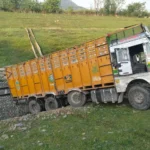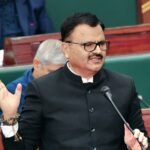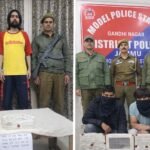Farooq Abdullah Blames Security Lapses, Backs PM Modi’s Response to Pahalgam Attack
Jammu and Kashmir National Conference (JKNC) president Farooq Abdullah has condemned the recent terrorist attack in Pahalgam, attributing the tragedy to significant security and intelligence lapses, while also blaming Pakistan for attempting to destabilise the region.
Speaking to reporters, Abdullah said, “There is no doubt this attack happened due to security and intelligence failures. Pakistan couldn’t tolerate that peace was returning to Jammu and Kashmir, so they spread propaganda and incited violence.” He also criticised Pakistan Army Chief General Asim Munir’s recent remarks invoking the two-nation theory, calling them provocative.
Abdullah expressed concern about the broader implications of the attack, saying it would negatively affect the Muslim community in India, which is already facing rising communal tensions. “There’s already a narrative being pushed for the last decade targeting Muslims—burning mosques, marginalisation. This attack further fuels that hatred,” he said.
He reiterated his opposition to the Waqf Bill and expressed hope that the Supreme Court would deliver justice. “We firmly oppose the Waqf Bill. This attack has only deepened the hatred, and we, the common people, continue to suffer. It’s been the same for over three decades,” he added.
Despite his criticism, Abdullah extended full support to the Centre in dealing with the aftermath of the Pahalgam attack. “We support the Prime Minister. He should take whatever steps are necessary in response,” he said, referring to the high-level security review chaired by PM Modi and attended by Defence Minister Rajnath Singh, NSA Ajit Doval, Chief of Defence Staff Gen Anil Chauhan, and the three service chiefs.
The attack in Pahalgam on April 22 claimed 26 lives and prompted a strong response from the Indian government, including a review of security and diplomatic measures.









